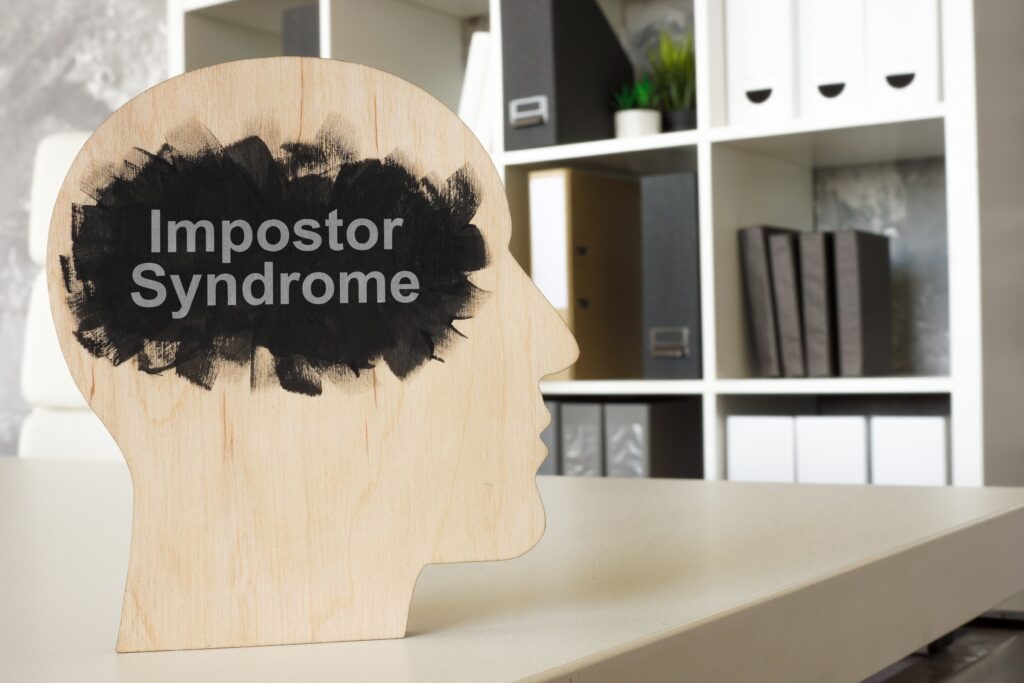Why feeling like a fraud doesn’t mean you are one — and what can help
You’ve achieved a lot. On paper, things may look good. But inside, it might feel very different — like you’re just getting by, winging it, or waiting for someone to notice you’re not as capable as they think.
If this sounds familiar, you’re not alone. These are the quiet hallmarks of imposter syndrome — a persistent, nagging sense that you don’t truly deserve your success, even when there’s plenty of evidence to the contrary.
The Inner Voice of Doubt
Imposter syndrome tends to show up as a stream of self-doubt and critical thoughts:
-
“I just got lucky.”
-
“They’ll realise I don’t actually know what I’m doing.”
-
“I’m not as qualified as everyone else.”
-
“Sooner or later, I’ll be found out.”
You might keep pushing yourself harder to prove otherwise — but the inner critic never quite quiets down. Over time, this cycle can become draining.
Why It Hits High Achievers So Hard
Imposter syndrome doesn’t mean you’re underperforming — it often affects people who are doing well. The more visible or successful you become, the more pressure you might feel to live up to others’ expectations — or your own.
Even when you receive praise or recognition, it can feel hard to take in. Success gets downplayed, explained away, or never feels quite enough. It’s this mismatch — between how others see you and how you feel inside — that keeps the imposter cycle going.
The Cost of Carrying It All
Imposter feelings can take a real toll over time:
-
Constant anxiety and overthinking
-
Struggling to believe your achievements are valid
-
Holding back from opportunities in case you fall short
-
Burnout from trying to keep up a flawless front
All of this can be incredibly isolating — especially when, from the outside, it looks like you’re holding everything together.
Shifting the Struggle with ACT
One of the approaches I use in therapy is Acceptance and Commitment Therapy (ACT), which offers a different way of working with imposter syndrome.
Rather than trying to “get rid of” imposter thoughts, ACT helps you relate to them differently — so they don’t hold as much power over you.
With ACT, we can:
-
Notice unhelpful thoughts without getting tangled up in them
-
Make room for difficult feelings rather than fighting against them
-
Clarify what truly matters to you — your values — and let them guide your actions
-
Practise self-compassion when doubt and fear show up
-
Take steps that feel authentic, even when confidence isn’t perfect
The goal isn’t to become fearless or flawless — it’s to live in a way that feels more grounded, purposeful, and true to who you are.
Therapy Can Help You Reclaim Your Confidence
Imposter syndrome might be a quiet struggle, but it’s not uncommon — and it’s not something you have to navigate on your own.
Therapy offers a space to explore these patterns, understand where they come from, and build the tools to respond to them differently. Alongside ACT, I also draw on approaches like CBT, CFT, and EMDR — each offering something valuable when working with self-doubt and perfectionism.
Over time, it’s possible to stop measuring your worth by how well you hide your insecurities — and start feeling more confident from the inside out.
If you’d like to explore how therapy might help, I’d be happy to have a conversation.

